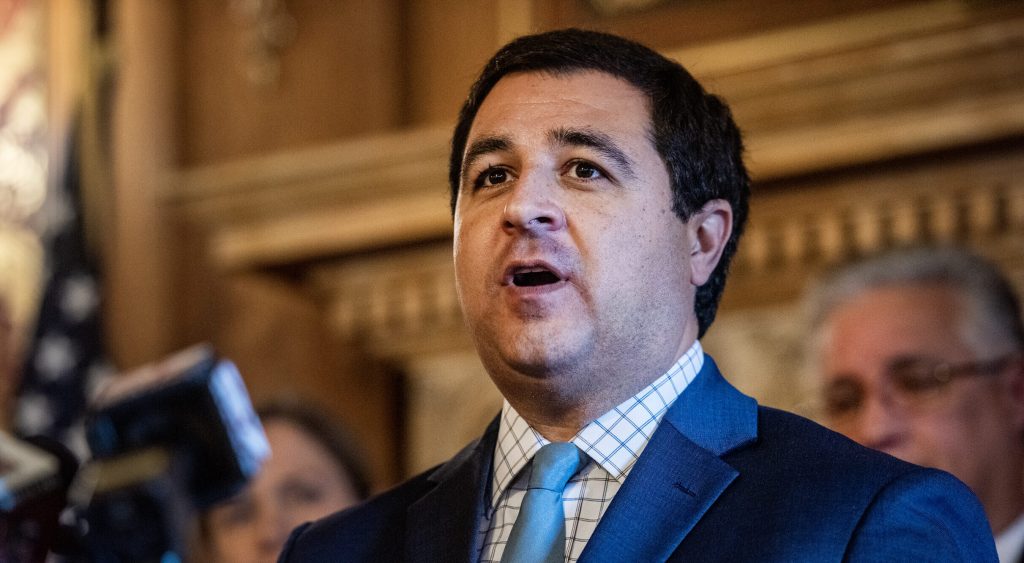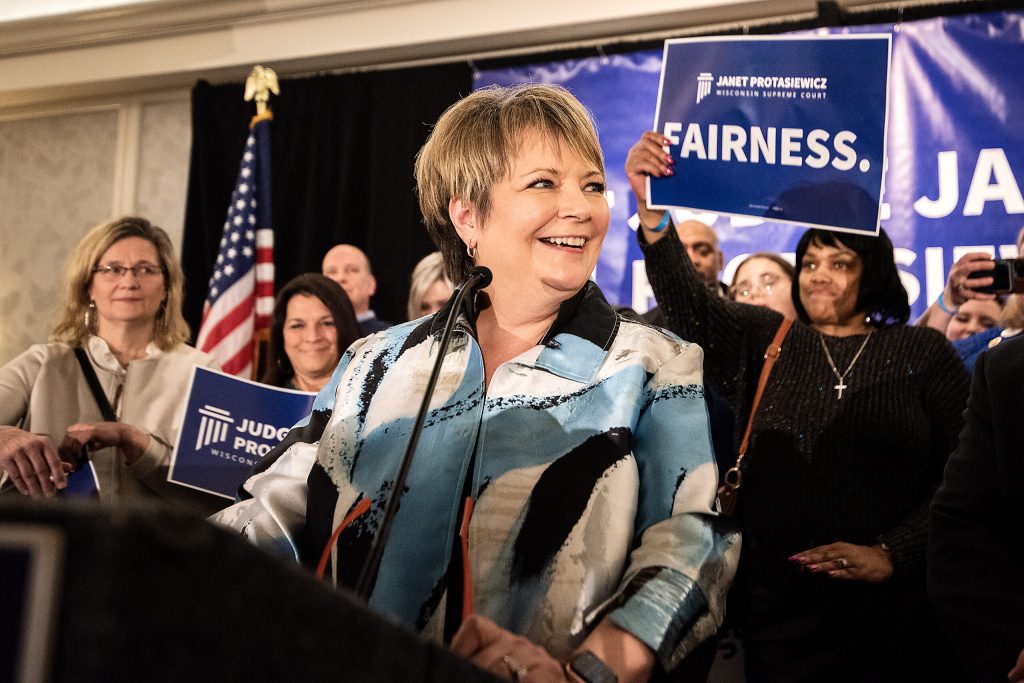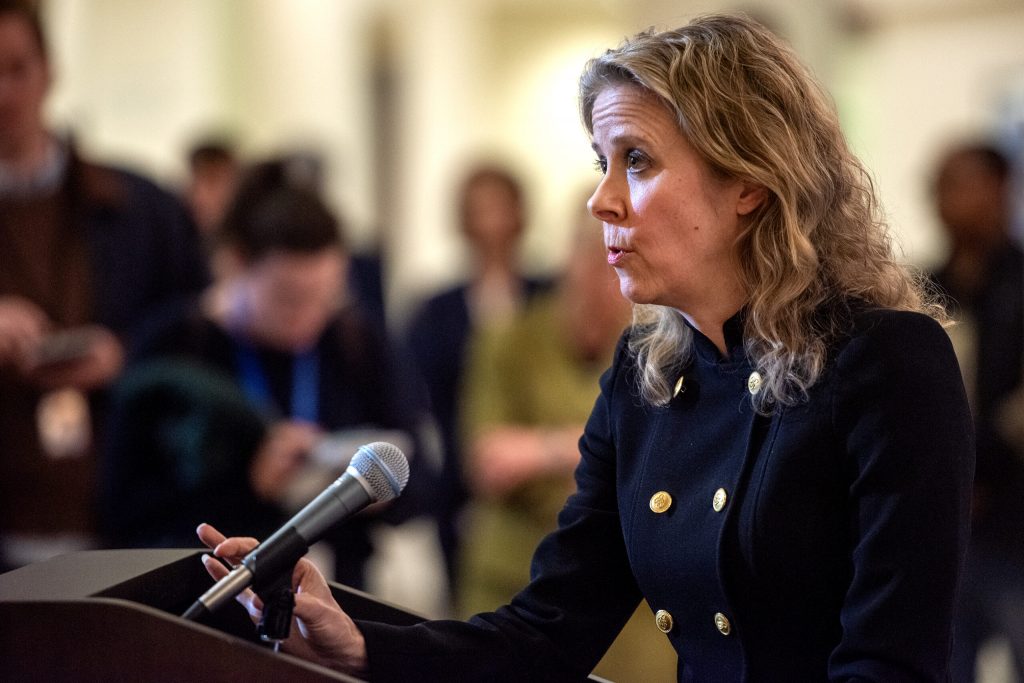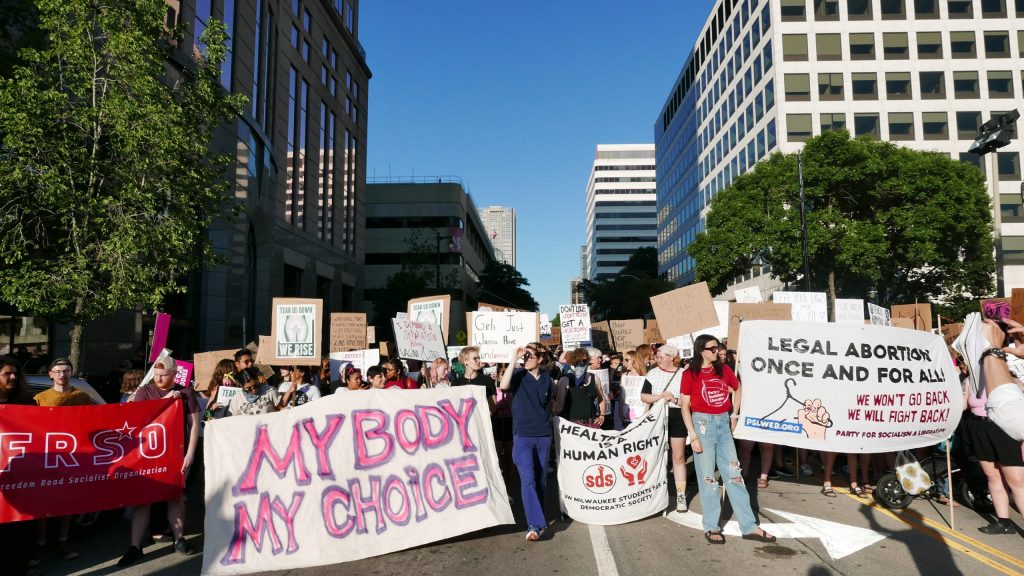What’s Next in Legal Fight Over Abortion in Wisconsin?
More issues remain after WI Supreme Court struck down 19th century ban.
Supporters of abortion rights celebrated earlier this month when the Wisconsin Supreme Court struck down a more-than-century old state law that criminalized almost all abortions.
But that long-anticipated decision could be just the beginning of a broader legal fight to expand abortion access in Wisconsin.
But, in its July 2 ruling, the high court’s court liberal majority concluded that law is no longer in effect because it was superseded by abortion laws passed later on.
Within hours of handing down that decision, the high court dismissed a separate lawsuit brought by Planned Parenthood of Wisconsin. That suit attempted to invalidate the 1800s-era abortion ban by arguing it violated rights guaranteed in the state constitution.
In its order scrapping the constitutional case, the high court said Planned Parenthood’s lawsuit was no longer relevant because the other July 2 decision had already invalidated the 19th century law.
Other abortion restrictions are still being enforced in Wisconsin
Even so, University of Wisconsin-Madison law professor Miriam Seifter said Planned Parenthood could still try to advance its constitutional arguments in a future case.
“Wisconsin imposes many other restrictions on abortion, and Planned Parenthood or other plaintiffs could decide to tee up the constitutional question by challenging those restrictions,” Seifter said.
Wisconsin also imposes a 24-hour waiting period for abortions by requiring the patient to get in-person counseling from a physician at least one full day before the abortion takes place. And the state requires someone to get an ultrasound 24 hours before obtaining an abortion.
The decision invalidating the 19th century abortion law came in response to a case brought by Wisconsin’s Democratic Attorney General Josh Kaul. He filed suit in the days after the U.S. Supreme Court overturned Roe v. Wade, which previously guaranteed a national right to abortion under the U.S. Constitution.
During a news conference following the July 2 decision, Kaul didn’t say whether his office would bring additional litigation to challenge other abortion restrictions that remain on the books in Wisconsin.
“We don’t have any specific plan at this point in time,” Kaul said of future abortion-related lawsuits. “What I do think is important … is for the Legislature to begin hearing from Wisconsinites about this issue.”

Wisconsin Attorney General Josh Kaul speaks at a press conference advocating for stricter gun laws Thursday, Sept. 21, 2023, at the Wisconsin State Capitol in Madison, Wis. Angela Major/WPR
Planned Parenthood of Wisconsin Chief Strategy Officer Michelle Velasquez likewise declined to get into specifics about future plans for lawsuits. But she suggested constitutional challenges are a possibility going forward.
Following the July 2 decision in the case known as Kaul v. Urmanksi, Wisconsin Right to Life criticized the Wisconsin Supreme Court’s legal basis for its order. It accused justices of trying to “legislate from the bench.”
“But let me be clear: Wisconsin Right to Life is not backing down,” the group’s Executive Director Heather Weininger said in a statement. “We are more committed than ever to advancing a culture of life in our state — through education, advocacy, and direct support for women facing unplanned pregnancies. Even as the courts shift, our mission stays the same: to ensure that every life, born and unborn, is valued and protected.”
Supreme Court will maintain liberal majority heading into next term
In the meantime, Democratic state lawmakers have introduced a bill that would repeal some of Wisconsin’s existing abortion restrictions while explicitly writing into state law that Wisconsin guarantees the right to an abortion.
Such legislation faces an uphill battle in Wisconsin’s Republican-controlled Legislature.
Currently, abortion remains legal in Wisconsin up until 20 weeks of pregnancy. Republican lawmakers could try and pass further regulations on abortion — such as changing the gestational threshold —but more restrictive measures are likely to be vetoed by Democratic Gov. Tony Evers.
That leaves the courts as a mechanism for change, and that legal landscape has shifted in Wisconsin over the past few years.
Wisconsin’s Supreme Court flipped to a liberal majority in mid-2023, following a decade and a half of conservative control.
That’s after liberal Justice Janet Protasiewicz won an election in which she made support for abortion rights a focal point of her campaign.

Judge Janet Protasiewicz, candidate for the Wisconsin Supreme Court, speaks to attendees at her election night event Tuesday, April 4, 2023, at Saint Kate – The Arts Hotel in Milwaukee, Wis. Angela Major/WPR
That 4-3 liberal majority will continue when the court’s next term starts Aug. 1.
In just a few weeks, liberal Justice Susan Crawford will be sworn in to replace outgoing Justice Ann Walsh Bradley, another liberal who decided to retire instead of running again.
“The liberal majority, I think, will embolden people who are supporters of abortion rights to try to take their case to court, especially given that Wisconsin has a Republican Legislature,” said Mary Ziegler, a law professor at the University of California, Davis. “There could be a pretty dramatic swing on abortion policy in Wisconsin.”
In the Kaul v. Urmanski majority opinion, justices determined that post-Roe abortion regulations led to the “implied repeal” of the more restrictive 19th century law.
In doing so, those justices avoided the more “explosive” question about whether there are broader protections for abortion in the state’s governing document, Ziegler said.
But Ziegler believes the Wisconsin Supreme Court might still end up weighing those questions in a future case that challenges other Wisconsin abortion laws.
In Kaul v. Urmanski, Justice Jill Karofsky agreed with the three other liberal justices by concluding that the 19th century abortion ban is no longer in effect. Karofsky recently became the court’s chief justice.
But Karofsky chose to write a separate concurring opinion, in which she asserted that enforcing the 19th century abortion ban would amount to “the world gone mad.”
“The statute at issue in this case, prohibits abortion from conception to birth, according to District Attorney Urmanski,” Karofksy wrote, referencing Sheboygan County DA Joel Urmanski, who defended the law against Kaul’s lawsuit. “Under his reading, the state may exert total control over one of the most intimate and personal decisions a woman may make. His interpretation strips women and pregnant people of the dignity and authority to make intimate and personal choices.”
In her dissenting opinion, conservative Justice Rebecca Bradley responded directly to Karofsky’s concurrence and wrote that Karofsky had distorted the history of abortion laws in the state.
“With no apparent sense of irony, the concurrence claims abortion restrictions amount to ‘death warrants’ for women, ignoring the people who feel just as passionately that abortion kills innocent human lives,” Bradley wrote. “The resolution of this divisive question does not belong with the judiciary. The question of abortion belongs with the People.”

Wisconsin Supreme Court Justice Rebecca Bradley addresses reporters after the debate between Brad Schimel and Susan Crawford on Wednesday, March 12, 2025, at Marquette University in Milwaukee, Wis. Angela Major/WPR
Ziegler said that back-and-forth between those two justice might foretell a broader legal debate about abortion in Wisconsin.
“You’ve had a concurrence by the chief justice kind of signaling that she thinks there are questions of constitutional dimension at play,” Ziegler said. “Justices Bradley and Karofsky were sort of like previewing the debate about whether there’s a constitutional abortion right in Wisconsin that we’re going to see eventually erupt. And so that was interesting, just because neither opinion was really strictly needed to resolve the case, and they both felt pretty passionate and even sometimes personal.”
Though she’s yet to announce her plans, Bradley is due up for reelection in 2026, with abortion rights once again likely to remain center stage. So far, state Appeals Court Judge Judge Chris Taylor, who’s backed by Democrats, is the only candidate to announce she’s running.
Taylor previously worked as a public policy director for Planned Parenthood of Wisconsin.
What’s next in the legal fight over abortion rights in Wisconsin? was originally published by Wisconsin Public Radio.
If you think stories like this are important, become a member of Urban Milwaukee and help support real, independent journalism. Plus you get some cool added benefits.






















